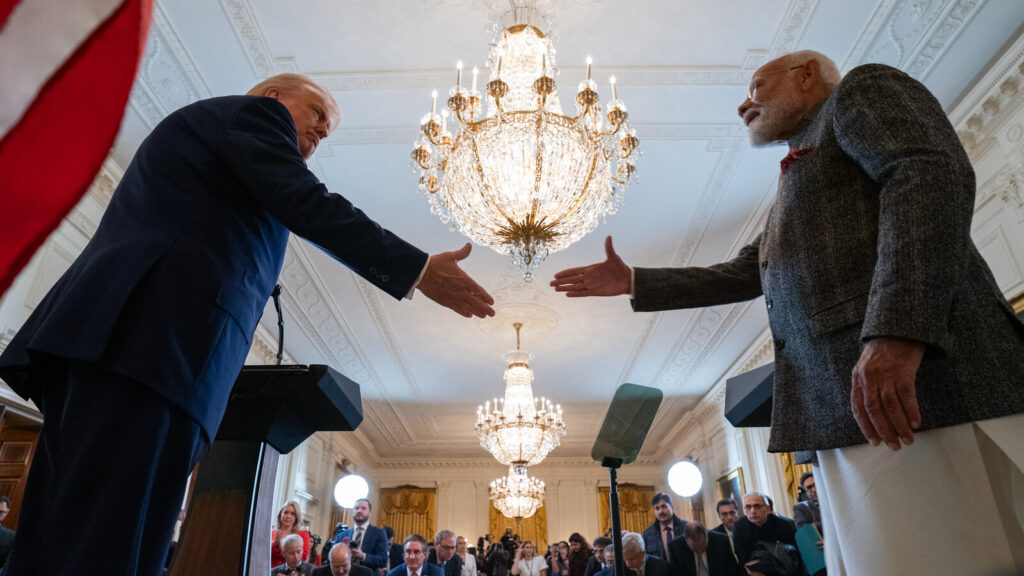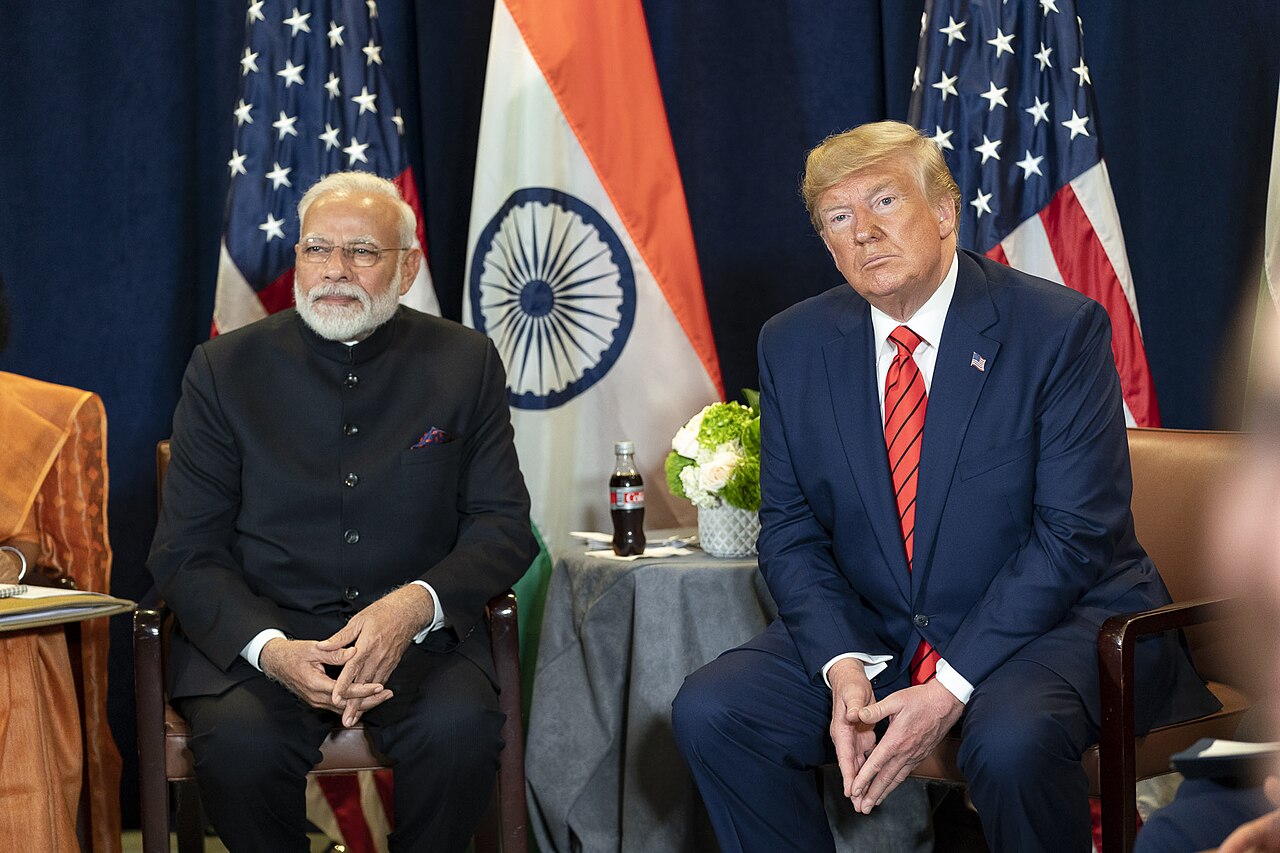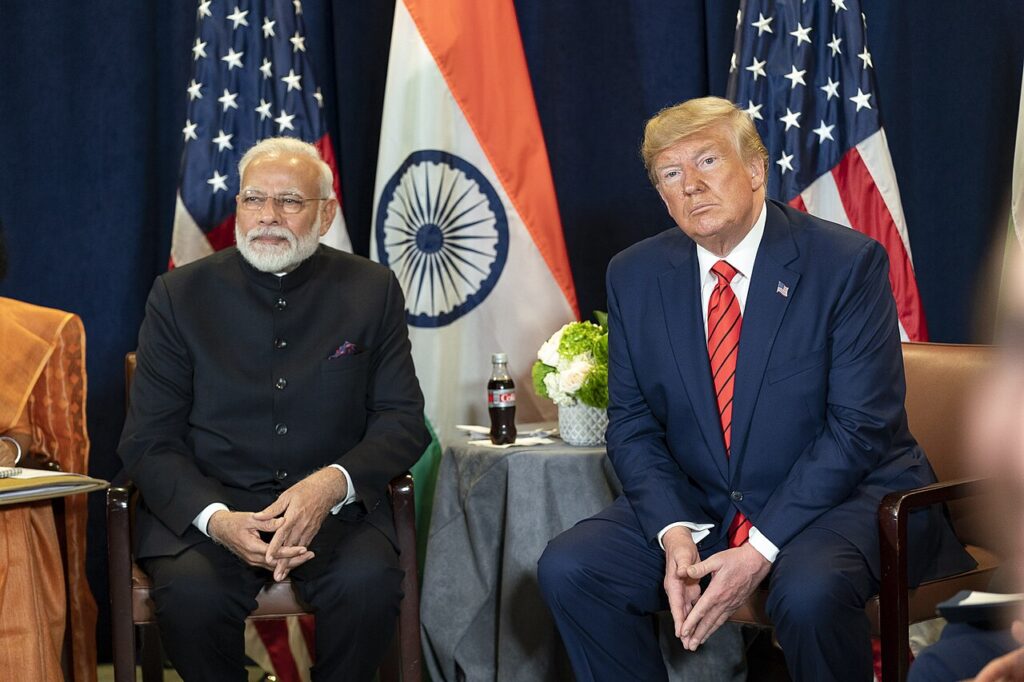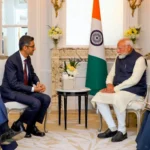In the past few days, something unusual happened on the world stage. Former U.S. President Donald Trump claimed that our Prime Minister, Narendra Modi, had promised to stop buying oil from Russia. Trump called it a “big step” and said Modi had given him this assurance personally.
Now, anyone who follows international news knows this is not a small claim. It has major political and economic implications. But what’s more important for us, the people of India, is this: Did Modi really say that? And if he did — or didn’t — how does it affect us?
The Government of India, through the Ministry of External Affairs, has responded to the issue. And they’ve made something very clear: India will buy oil based on what benefits Indian people — not based on pressure from anyone else.

🛢 Why Is This Such a Big Deal?
First, let’s understand why this Russian oil issue keeps coming up.
India is the third-largest oil importer in the world. We don’t produce enough crude oil ourselves. We need to import it to keep our vehicles running, factories working, power plants lit, and homes warm.
When the Russia-Ukraine war started, Western countries, especially the US and Europe, started putting sanctions on Russia — meaning they told the world to stop buying from them.
But Russia started selling oil at a discounted price. Countries like India, needing cheaper oil to keep prices low at home, started buying more from Russia. Simple economics.
But the US wasn’t happy. They want countries to isolate Russia economically. So now, when Trump says Modi gave him a personal assurance about stopping Russian oil imports — it looks like he’s trying to show that India is on their side.
But is it really that simple? No.
What Did India Say?
ndia didn’t react with anger. But the answer was firm.
The Ministry of External Affairs said:
“India is a significant importer of oil and gas. Our priority is to safeguard the interests of Indian consumers. Our energy sourcing is guided by national interest.”
That means: we’ll buy from where it’s safe, affordable, and steady — so that you and I don’t pay extra at the petrol pump or suffer from fuel shortages.
They also said that India is working to diversify — to not rely on just one country. But that doesn’t mean stopping Russian oil if it’s the best option.
And they made one thing very clear — they didn’t confirm any promise made to Trump.
🤔 Did Modi Actually Promise Anything?
We, the public, weren’t in the room. We don’t know what was said privately.
But what we do know is this: India has always maintained that it acts in its own interest. And in international politics, “assurance” doesn’t always mean action. Sometimes it’s just diplomatic talk. Sometimes, it’s taken out of context.
Even if Modi did say something like “we’ll consider reducing it,” that doesn’t mean India committed to cutting off Russian oil completely.
So for now, unless we hear it from the Indian side directly, we shouldn’t treat Trump’s words as fact.
👥 Why Should Ordinary Indians Care?
Because this isn’t just some international drama — it affects you, your family, and your wallet.
Let’s say India stops buying Russian oil suddenly. What happens?
- Prices will rise – Russian oil is cheaper. If we stop buying it, we’ll need to buy from costlier sources. Petrol, diesel, LPG, everything goes up.
- Inflation will hit – When fuel gets expensive, transport gets expensive. Vegetables, groceries, medicines, travel — all become costlier.
- Pressure on government schemes – If oil becomes expensive, the government may have to spend more on subsidies. That takes money away from other sectors — like education, jobs, health, etc.
- Geopolitical weakness – If India stops buying just because the U.S. says so, it looks like we’re not independent in our decision-making.
So yes — this matters to all of us.
🧭 What Should India Actually Do
India’s path so far has been pretty smart. It hasn’t taken sides in the Russia-Ukraine conflict. It’s called for peace, asked both countries to talk, and kept trade relations open.
At the same time, India has
- Increased oil purchases from Russia to get better rates
- Continued energy talks with the US and Middle Eastern countries
- Invested in clean energy and long-term self-sufficiency
Basically, India is trying to balance diplomacy with economics — and that’s not easy. Especially when global powers are pulling in different directions.
But India has also shown that it won’t be pushed around.
That’s what “strategic autonomy” means — not being anyone’s puppet.
💬 What Are People Saying?
If you go online or check WhatsApp groups, you’ll see mixed reactions.
Some people say: “Why are we still buying oil from Russia? It’ll ruin our image.”
Others say: “Why should we care what the West thinks? Are they paying our bills?”
Many experts support India’s approach — saying every country must act based on what’s best for its citizens, not to please anyone else.
And honestly, they’re right. Countries like Germany, France, even the U.S. itself have continued business with countries they politically disagree with — because of energy needs.
So when we do the same, it’s not hypocrisy. It’s survival.

✋ Final Thought: Let’s Not Be Naive
Politics is complicated. International politics? Even more so.
But here’s what we can understand easily:
- India needs oil.
- Russia is offering it cheaper.
- The US wants us to stop.
- But India must think of its people first.
In the end, it’s not about Trump or Modi. It’s about the common Indian — the one paying ₹100 for a litre of petrol, the one managing monthly expenses, the one taking the bus to work.
As citizens, we should demand that our leaders prioritize us — not foreign applause.
If buying Russian oil keeps our prices low, our economy steady, and our bills manageable — then that’s the right call.
Let others talk. India will do what’s right. For its people.



